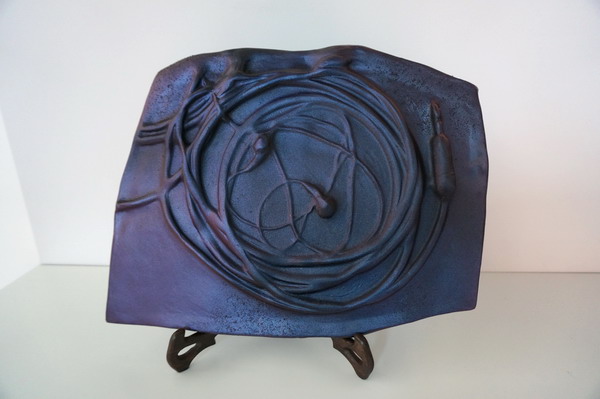 |
|
[Photo by Ruan Fan/chinadaily.com.cn] |
What would archeologist discover about us through what we leave behind? Telofossil, an exhibition about future archeology currently showing at Unicorn Space, Caochangdi Arts, Beijing, poses that intriguing question.
"I have always been surprised by the fact that when we mention the end of the world, we usually only consider the end of humanity," said French artist Grégory Chatonsky on how he arrived at destruction, the central idea behind Telofossil.
"Earth precedes us and will also survive us, and the disappearance of our species would not signify the end of the planet," he said.
With such an insight, Grégory Chatonsky, together with Canadian artist Dominique Sirois, explores a speculative fiction about the Earth without us and questions the notion of virtual reality from a philosophical stance.
Destruction and rebirth
"Imagine we are all aliens - when we look at all these identical objects that are of no apparent use, what would we think?" questioned Grégory and Dominique as they led visitors through the main exhibition room.
The room, scattered with huge sandstones embedded with computer parts, keyboards andhard disks, left the visitors speechless. It is difficult to relate to these technological products now that they are no longer functioning.
Unlike the ruins of honeycomb briquettes that are also found at the site, "the failure of the technique reveals itself," Dominique says.
We seldom realize how have we been transformed by technology. When a technological product is still in use, we barely realize that we have rendered to it a part of us - it is when they malfunction or when we lose them that we become aware that part of us is destroyed, gone without a trace. This seemingly inescapable fact has urged visitors to think.
On the second floor of the exhibition center, Grégory suggested visitors take a look at the nine sketch drawings hanging on the wall.
"You may be able to tell that they are construction drawings of architecture. But look closer and you may find that they are not for building architecture, but predicting the destruction of architecture," said Grégory.